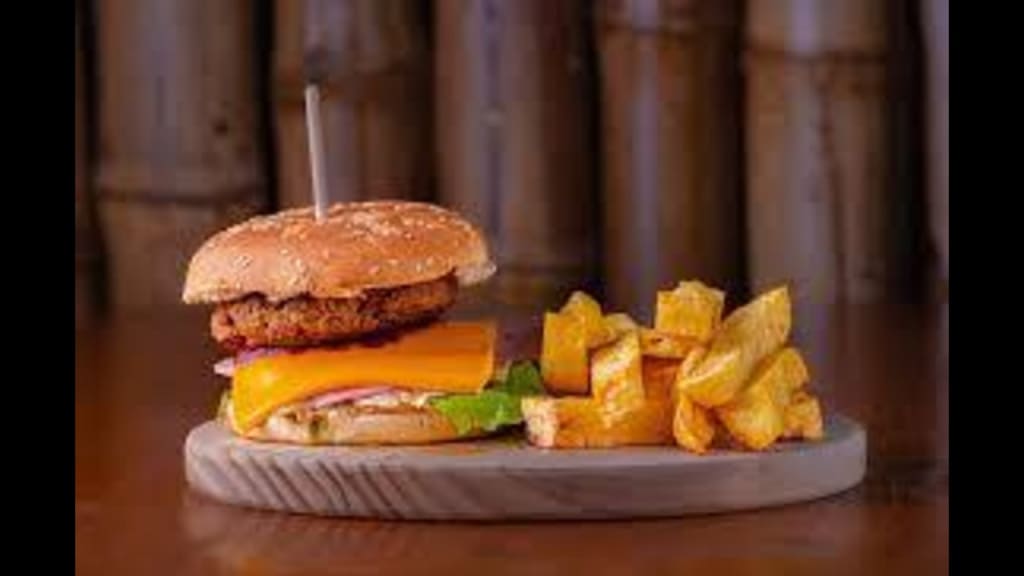Why You Should Avoid Junk Food When Feeling Stressed: Insights from a New Study
High-Fat Diets Linked to Increased Anxiety Through Disruption of Gut Bacteria and Brain Chemistry

Stress eating is a common response to anxiety and emotional distress. Many people turn to high-calorie comfort foods like French fries, burgers, and samosas when they feel anxious, hoping to find some relief in their favorite snacks. However, recent research suggests that this habit can actually worsen anxiety levels rather than alleviate them.
A new study conducted by the University of Colorado at Boulder has shed light on the negative impact of consuming junk food during times of stress. According to the study, a high-fat diet can disrupt gut bacteria, alter behavior, and influence brain chemicals in ways that increase anxiety.
Lead author Christopher Lowry, a professor of integrative physiology at CU Boulder, found the effects of a high-fat diet on the brain to be particularly striking. "Just a high-fat diet that could alter the expression of these genes in the brain is extraordinary," Lowry remarked. The study, published in the journal Biological Research, reveals that animals on a high-fat diet exhibited a molecular signature in their brains indicative of a high anxiety state.
The researchers analyzed the gut bacteria, or microbiome, of animals in the study. Those on a high-fat diet gained weight and showed significantly less diversity in their gut bacteria compared to a control group on a regular diet. This reduction in gut bacteria diversity was accompanied by an increased expression of three genes involved in the production and signaling of serotonin, a neurotransmitter associated with stress and anxiety.
While serotonin is often referred to as the "feel-good brain chemical," the study found that certain subsets of serotonin neurons can prompt anxiety-like responses when activated. This finding suggests that not all serotonin activity is beneficial and that the type of serotonin response can significantly impact mental health.
Lowry and his team suspect that an unhealthy microbiome may compromise the gut lining, allowing bacteria to enter the body’s circulation and communicate with the brain via the vagus nerve. This nerve serves as a critical communication pathway between the gastrointestinal tract and the brain. The study posits that this communication could lead to increased anxiety.
"If you think about human evolution, it makes sense. We are hard-wired to notice things that make us sick so we can avoid those things in the future," Lowry explained. This evolutionary perspective highlights why our bodies might respond negatively to unhealthy foods, linking poor dietary choices to heightened anxiety.
Importantly, the researchers also emphasized that not all fats are detrimental. Healthy fats, such as those found in fish, olive oil, nuts, and seeds, can be anti-inflammatory and beneficial for brain health. These fats support a healthy microbiome and do not have the same negative effects on anxiety as unhealthy fats found in junk food.
The study's findings underscore the importance of diet in managing stress and anxiety. While it might be tempting to reach for a greasy burger or a plate of French fries when feeling stressed, these choices can exacerbate anxiety symptoms. Instead, opting for foods rich in healthy fats can provide the brain with the nutrients it needs to function optimally without contributing to anxiety.
The impact of diet on mental health is an area of growing interest and research. This study from CU Boulder adds to a body of evidence suggesting that what we eat profoundly affects our mental well-being. As we learn more about the gut-brain connection, it becomes increasingly clear that maintaining a healthy diet is crucial for both physical and mental health.
In addition to avoiding high-fat junk foods, incorporating healthy fats into your diet can help manage anxiety. Foods like salmon, avocados, walnuts, and chia seeds are excellent sources of beneficial fats. These foods support brain health and can help maintain a balanced microbiome, reducing the risk of anxiety.
Moreover, it's essential to consider other lifestyle factors that contribute to stress and anxiety management. Regular physical activity, adequate sleep, and mindfulness practices such as meditation and yoga can all play a role in maintaining mental health. Combining these practices with a healthy diet can provide a comprehensive approach to managing stress and anxiety.
The findings from this study are a call to action for those struggling with stress and anxiety. By making conscious dietary choices and opting for foods that support mental well-being, individuals can take proactive steps to manage their anxiety. Avoiding junk food and incorporating healthy fats into your diet can make a significant difference in how you feel and cope with stress.
In conclusion, while it might be tempting to indulge in high-fat junk foods during stressful times, doing so can increase anxiety levels and negatively impact mental health. Instead, focusing on a diet rich in healthy fats can help support brain health and reduce anxiety. As we continue to understand the intricate relationship between diet and mental health, it becomes increasingly important to make informed dietary choices that promote overall well-being.
The next time you feel stressed or anxious, remember the impact that your food choices can have on your mental state. Choose foods that nourish your body and mind, and take steps to maintain a healthy lifestyle. By doing so, you can better manage stress and anxiety, leading to a happier, healthier life.
About the Creator
Enjoyed the story? Support the Creator.
Subscribe for free to receive all their stories in your feed. You could also pledge your support or give them a one-off tip, letting them know you appreciate their work.





Comments
There are no comments for this story
Be the first to respond and start the conversation.